How to Choose the Best Car Battery for Your Vehicle
Published on Mar 05, 2025Auto Repair Shops Near Me
Recommended

Can I Use a Battery Charger to Jumpstart a Car Battery? A Comprehensive Guide
Can you use a battery charger to jumpstart your car battery? This comprehensive guide explains how battery chargers work, when they can be used for jumpstarting a car, and the best practices for car emergency situations. Learn more about troubleshooting your car battery and solving common issues.
Mar 04, 2025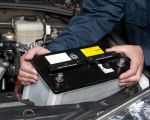
Can You Jumpstart a Dead Battery with a Low Battery Charger? Expert Insights and Practical Solutions
Wondering if you can jumpstart a dead battery with a low battery charger? This comprehensive guide will walk you through the process, troubleshoot your car battery issues, and offer practical advice on when to seek professional help. Discover expert insights and valuable tips to get you back on the road.
Mar 04, 2025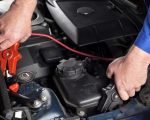
Why Doesn’t My Car Battery Hold a Charge After a Jumpstart? – Troubleshooting Guide
If your car battery won’t hold a charge after a jumpstart, there could be a deeper issue. Learn the possible causes and troubleshooting steps to fix the problem and get your vehicle running again.
Mar 03, 2025
How to Maintain Your Jump Starter for the Best Performance – Essential Care Tips
A well-maintained jump starter ensures reliability when you need it most. Learn how to care for your portable jump starter, extend its lifespan, and keep it ready for emergencies with this detailed guide.
Mar 03, 2025
How to Fix a Car That Won't Start: Troubleshooting and Solutions
Discover practical solutions for fixing a car that won't start. Learn about common causes, step-by-step troubleshooting, and tips for resolving starting issues. This guide will help you get your car back on the road.
Feb 28, 2025
Signs Your Car's Exhaust System Needs Repair – Identifying Common Exhaust Issues
Learn how to identify when your car's exhaust system needs repair. This detailed guide explains common signs, symptoms, and issues with your exhaust system, helping you catch problems early and avoid expensive repairs.
Feb 28, 2025Related Categories
Popular
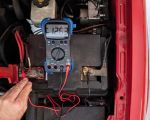
How to Check the Voltage of Your Car Battery
Feb 27, 2025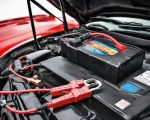
How to Restart a Car with a Dead Battery: A Step-by-Step Guide
Feb 26, 2025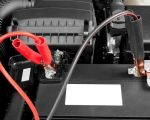
Car Battery Jumpstart for Beginners: A Complete Guide
Mar 12, 2025
Jumpstart vs Battery Replacement: What You Need to Know for Emergency Car Rescue and Towing Services
Feb 25, 2025
Is It Worth Jumping Your Car? The Risks and Benefits
Mar 12, 2025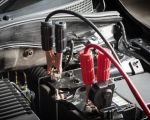
How to Jumpstart a Dead Car Battery with Another Vehicle
Mar 12, 2025
Signs Your Car's Exhaust System Needs Repair – Identifying Common Exhaust Issues
Feb 28, 2025
Benefits of Jumpstarting Your Car vs Calling Roadside Assistance: A Detailed Comparison
Feb 28, 2025
What to Do When Your Car Suddenly Loses Power: Troubleshooting and Fixes
Feb 27, 2025












